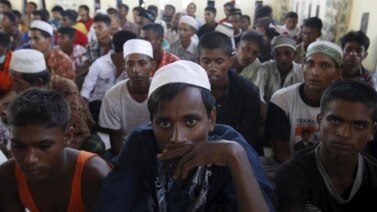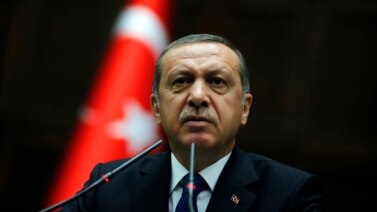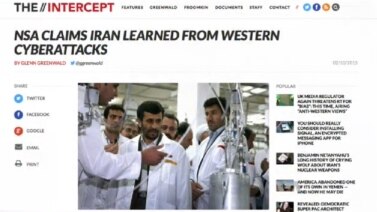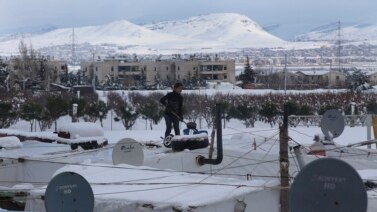The Committee to Protect Journalists has released a list of the top 10 countries where reporters are the most-severely limited. Eritrea and North Korea are at the top of the list. The eight others are China, Saudi Arabia, Iran, Ethiopia, Azerbaijan, Vietnam, Burma and Cuba.
The committee says officials in the 10 countries harass -- interfere with -- and imprison journalists in an effort to restrict their reporting. It also says the officials limit use of the Internet to keep journalists quiet.
The Committee to Protect Journalists says 44 journalists are imprisoned in China -- more than in any country. And it says the government in Iran detains many people, often for no reason, to silence its opponents or force them to leave the country.
Courtney Radsch is the advocacy director of the committee. She says 200 journalists were jailed worldwide over the past 12 months. She adds that many more were forced to leave their home country.
“The past three years have been the most dangerous on record for journalists -- with record numbers of killings, of imprisonment, and based on CPJ’s assistance data, more than 400 journalists have been forced into exile over the past five years.”
Internet restrictions are an important weapon for government officials who want to silence their critics. In North Korea, only politically powerful people can use the Internet. In Cuba, bloggers have to use computers at embassies or hotels to keep information on their blogs current.
China has 642 million Internet users. They face what critics call “The Great Firewall.”
Courtney Radsh says China blocks social media websites and sites that criticize the Chinese government.
“Censorship is a very powerful tool, it does restrict information flows. In order to bypass censorship you often have to have highly technical skills, what tools to use, what techniques and also how to keep their sources safe and their broader profiles safe.”
The Arab Spring movement led to new restrictions in Eritrea. The Committee to Protect Journalists says the government cancelled plans to provide mobile, or wireless, Internet to Eritrean citizens. After the Arab Spring, the government in Saudi Arabia amended its press laws. Those laws now ban the publication of material said to be in conflict with Sharia law or that could cause disorder.
Government-controlled media are often the only source of information in the 10 countries on the list. Courtney Radsch says the new report tells journalists and citizens in those countries that the world is watching, and cares.
I’m Christopher Jones-Cruise.
Daniela Schrier reported this story from New York City. Christopher Jones-Cruise wrote it for Learning English. George Grow was the editor.
Words in This Story
exile – n. a situation in which people are forced to leave their home country and go to live somewhere else
blog(s) – n. short expression for “web log,” a personal website where people write about whatever they want
flow(s) – n. the movement of something like a liquid
Sharia – n. the religious laws based on the Koran which Muslims follow
Are journalists in your country harassed or imprisoned? Is access to the Internet restricted? We want to hear from you. Write your thoughts in the comments section.





